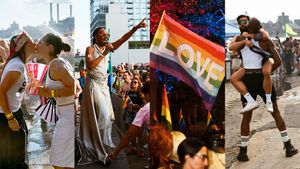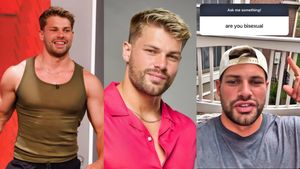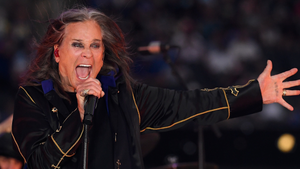Organizers of the annual St. Patrick's Day Parade in South Boston have refused to allow the LGBT group MassEquality to participate in the 2014 parade, reports Boston.com.
MassEquality was notified their application had been rejected via an after-hours voicemail left by the parade organizers who cited the 1995 US Supreme Court decision in Hurley v. Irish-American Gay, Lesbian and Bisexual Group of Boston, as the reason they are legally able to legally able to exclude LGBT groups from participating. In that ruling, the Supreme Court granted John J. Hurley - the previous organizer of the parade - the right to deny any group from participating if it presented a message that was contrary to the one the private organization wished to express.
However, the parade organizers later clarified to the Boston Globe that they do not ban LGBT people from the parade, only LGBT demonstrations.
"We don't know who's gay in the parade, and we don't ban gay people. We ban gay
demonstrations, people that are sending out the wrong messages, messages that we don't agree with," parade organizer Philip Wuschke told the Boston Globe. "It's not that type of parade. They have their own parade. Ours is a day of celebration, not demonstration."
MassEquality Executive Director Kara Coredini responded on behalf of the LGBT organization with the following statement:
Since when does being open and proud of being an LGBTQ person in the City of Boston send the 'wrong message'? It's stunning that in 2014 a high-profile cultural institution like the South Boston St. Patrick's Day Parade would force LGBTQ people to retreat back into the closet in order to participate. This is just another version of "Don't Ask, Don't Tell."
While the LGBTQ community in Massachusetts faces many issues more urgent than the ability to participate openly in a parade - youth homelessness, bullying, anti-transgender discrimination, HIV/AIDS, elder abuse, and more - this kind of public rejection perpetuates a hostile climate that enables the community's more life-threatening challenges to thrive.
Rejection by their families is why 57% of transgender people attempt suicide and why up to 40% of homeless youth are LGBTQ. According to the Massachusetts Youth Risk Behavior Survey, rejection by fellow students is why LGBTQ students are twice as likely to skip school and four times more likely to commit suicide than their heterosexual peers. Rejection is also why the mere fact of being an openly LGBTQ person results in higher stress and poorer health.
We appreciate the efforts of the South Boston Association of Non-Profits and of Boston's elected and community leaders who partner with the LGBTQ community to reverse these shocking statistics. Together, we will continue to improve lives by working for the day when openly LGBTQ people are included in all aspects of civil and social life.













































































